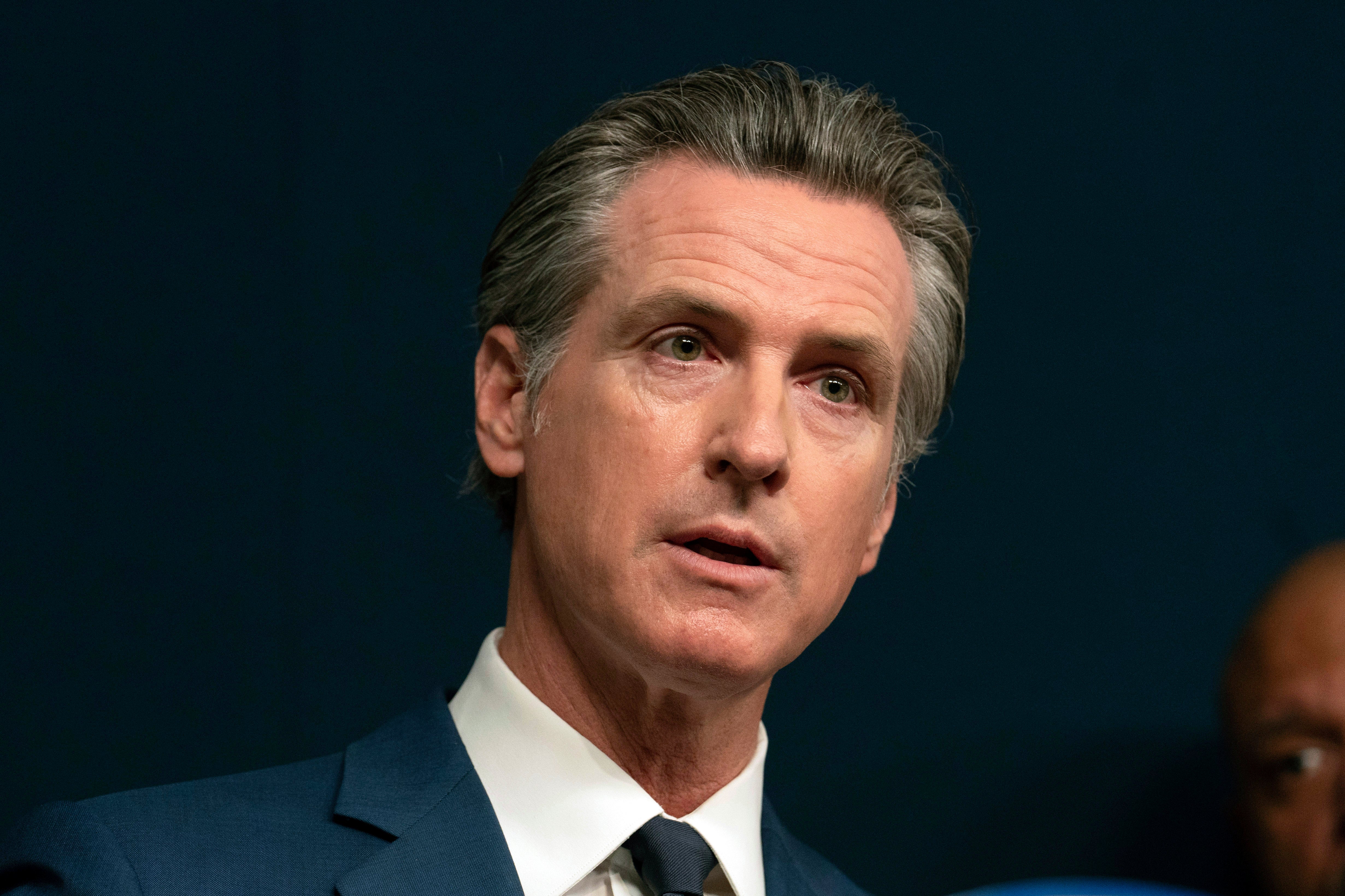California Gov. Gavin Newsom signs law requiring big businesses to disclose emissions
California will soon require big businesses to report a wide range of greenhouse gas emissions

Large businesses in California will have to disclose a wide range of planet-warming emissions under a new law Gov. Gavin Newsom signed Saturday — the most sweeping mandate of its kind in the nation.
The law requires more than 5,300 companies that operate in California and make more than $1 billion in annual revenues to report both their direct and indirect emissions. That includes things like emissions from operating a building or store as well as those from activities like employee business travel and transporting their products.
The law will bring more transparency to the public about how big businesses contribute to climate change, and it could nudge them to evaluate how they can reduce their emissions, advocates say. They argue many businesses already disclose some of their emissions to the state.
But the California Chamber of Commerce, agricultural groups and oil giants that oppose the law say it will create new mandates for companies that don't have the experience or expertise to accurately report their indirect emissions. They also say it is too soon to implement the requirements at a time when the federal government is weighing emissions disclosure rules for public companies.
The measure could create “duplicative” work if the federal standards are adopted, the chamber and other groups wrote in an alert opposing the bill.
California has made major strides to set trends on climate policy in recent years. The state has set out to ban the sale of new gas-powered cars by 2035, expand renewable energy and limit rail pollution. By 2030, the state plans to lower its greenhouse gas emissions by 40% below what they were in 1990.
This was Democratic State Sen. Scott Wiener's third attempt to get the sweeping emissions disclosure rules passed in California. Last year, it passed in the Senate but came up short in the State Assembly. Wiener said the new emissions information will be useful for consumers, investors and lawmakers.
“These companies are doing business in California,” Wiener said. “It's important for Californians to know ... what their carbon footprint is.”
Major companies, including Apple and Patagonia, came out in support of the bill, saying they already disclose much of their emissions. Christiana Figueres, a key former United Nations official behind the 2015 Paris climate agreement, said in a letter that the bill would be a “crucial catalyst in mobilizing the private sector to solve climate change.”
Seventeen states already have inventories requiring major emitters to disclose their direct emissions, according to the National Conference of State Legislatures. But the new California mandates will be go beyond that to make companies report a wide range of direct and indirect emissions.
Public companies are typically accustomed to collecting, verifying and reporting information about their business to the government, said Amanda Urquiza, a corporate lawyer who advises companies on climate and other issues. But the California law will mean a major shift for private companies that don’t yet “have the infrastructure” to report information that will include a wide-range of greenhouse gas emissions, she said.
The federal rules, proposed by the U.S. Securities and Exchange Commission, would require major public companies to report their emissions and how climate change poses a financial risk to their business.
Under the California law, the state's Air Resources Board has to approve rules by 2025 to implement the legislation. By 2026, companies have to begin annually disclosing their direct emissions, as well as those used to power, heat and cool their facilities. By 2027, companies have to begin annually reporting other indirect emissions.
___
Sophie Austin is a corps member for the Associated Press/Report for America Statehouse News Initiative. Report for America is a nonprofit national service program that places journalists in local newsrooms to report on undercovered issues. Follow Austin on X, the platform formerly known as Twitter: @sophieadanna
Subscribe to Independent Premium to bookmark this article
Want to bookmark your favourite articles and stories to read or reference later? Start your Independent Premium subscription today.
